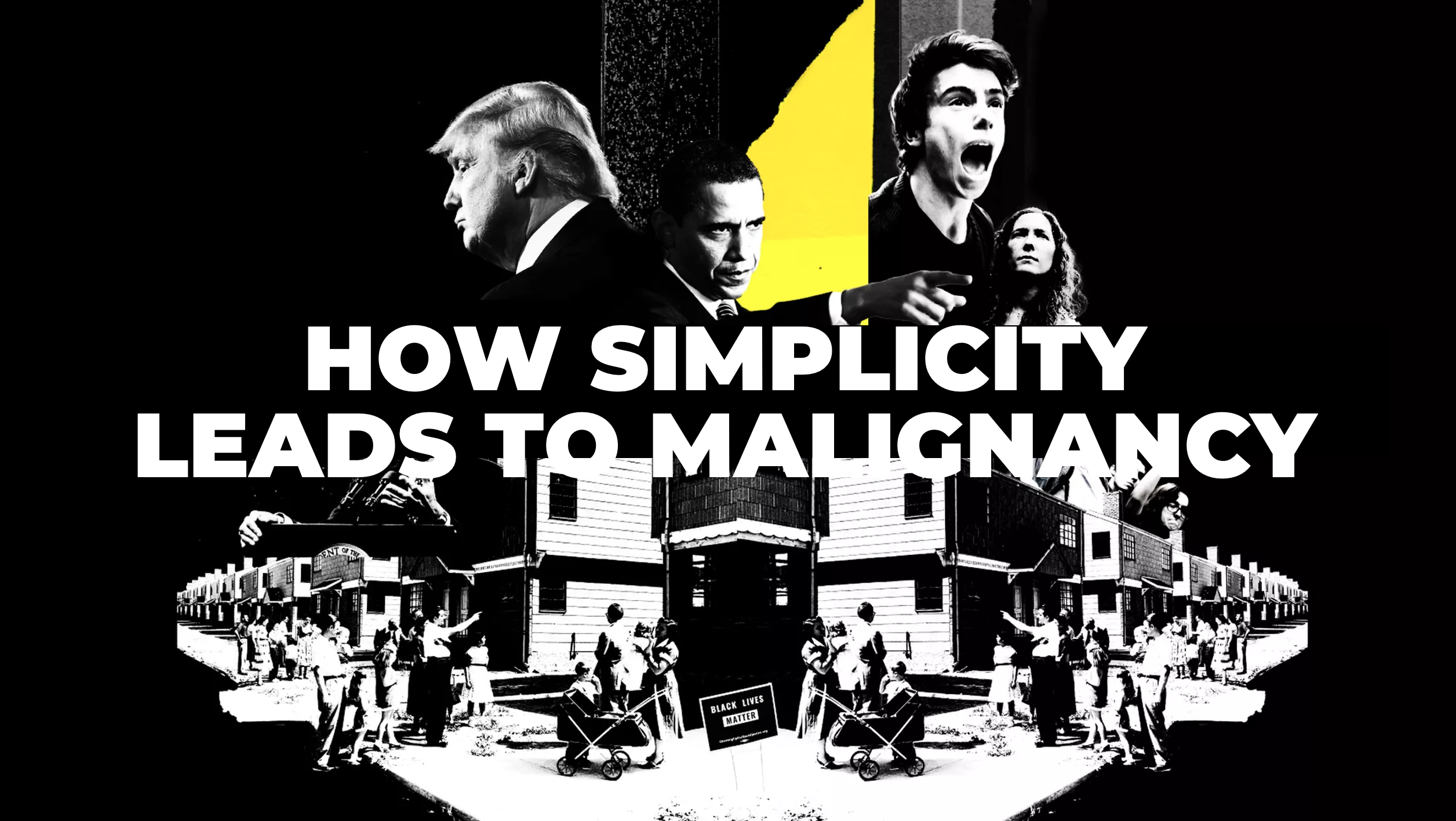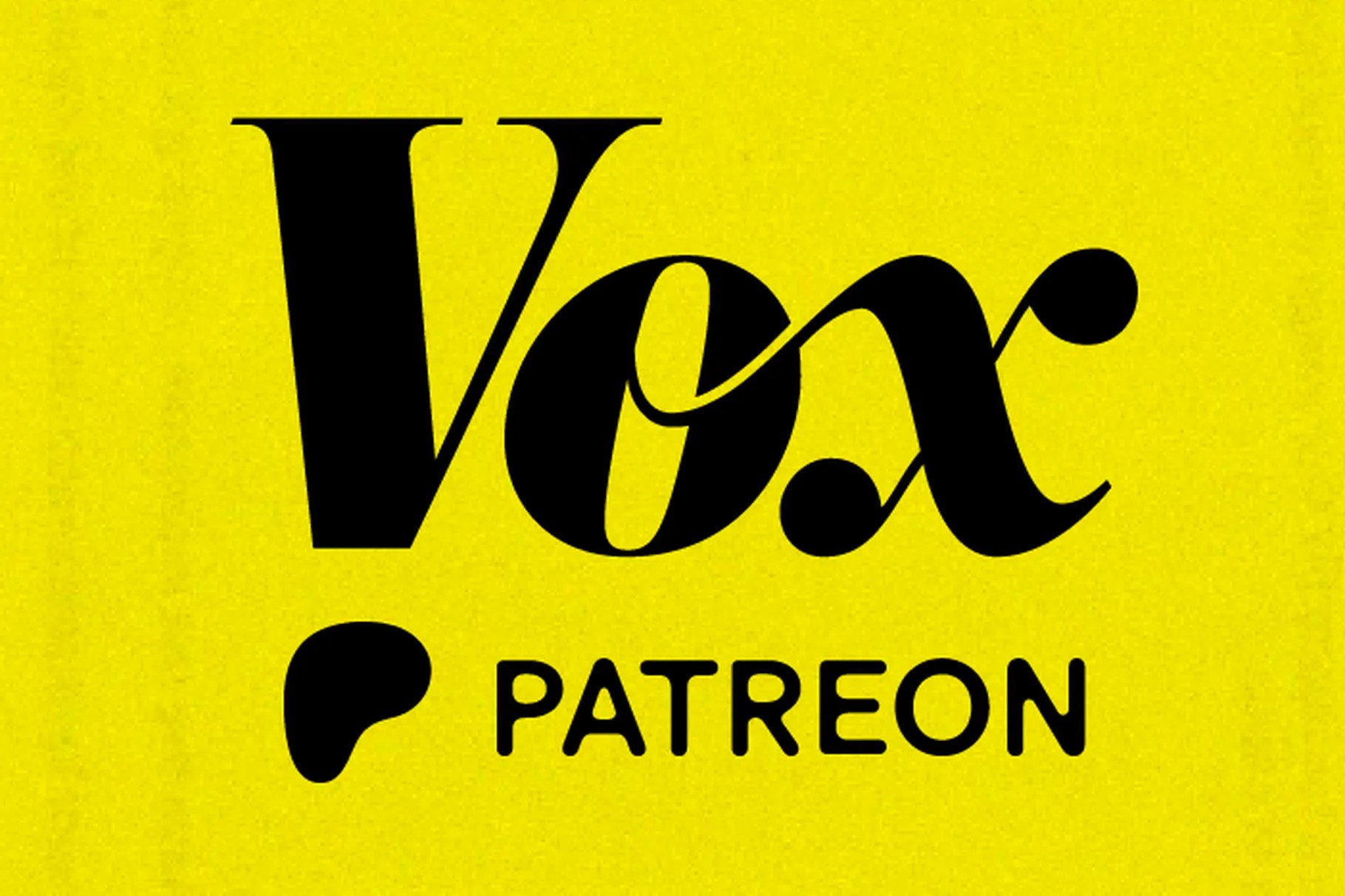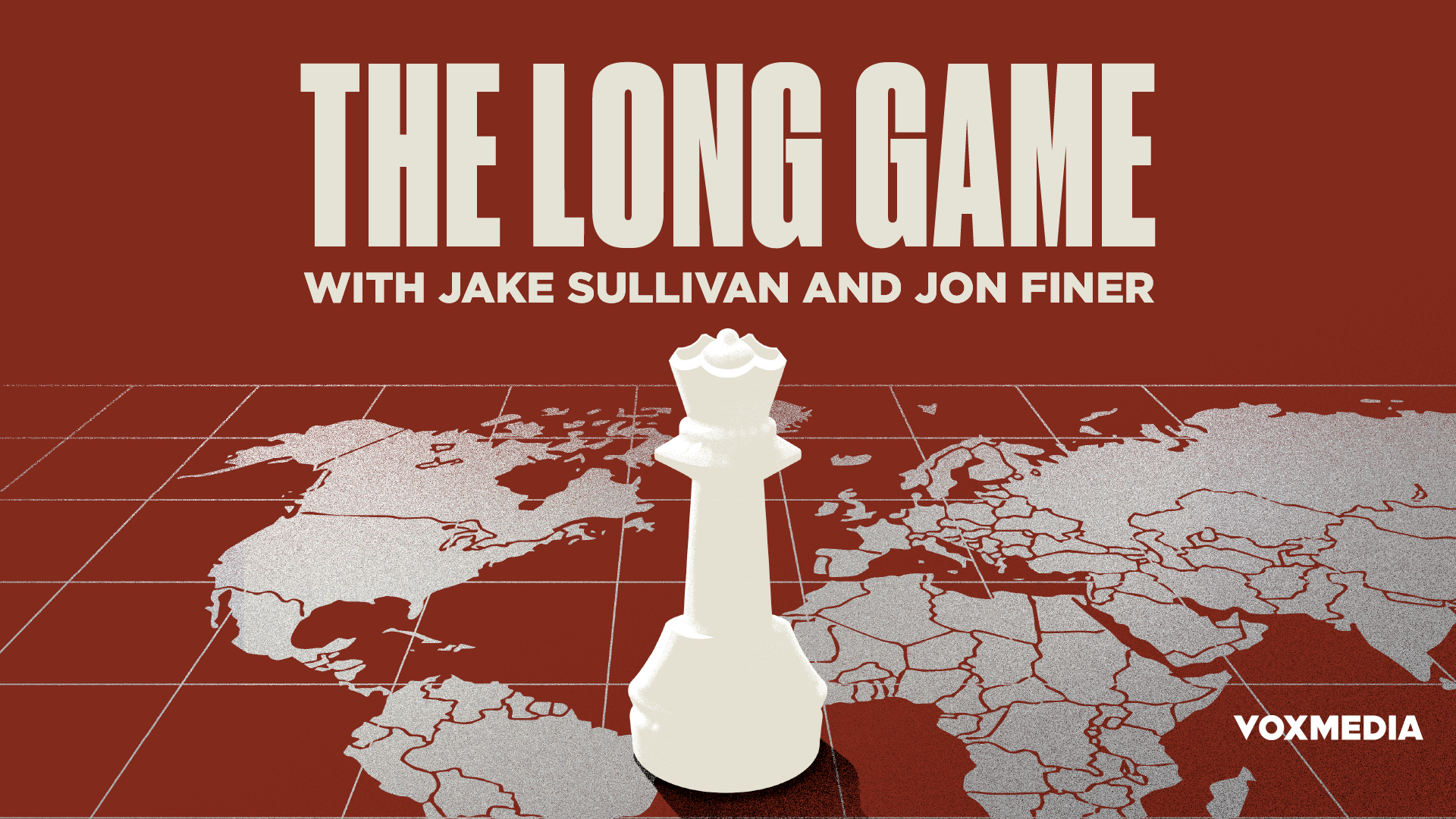Weeks after a divisive and polarized presidential election, we are headed into a Georgia runoff that will determine which party controls the U.S Senate. The good news? We share more commonalities than you’d think.
Vox Media sees responsible, quality journalism as crucial to narrowing the divide and bridging the gap between information and action. Our Insights & Innovation team partnered with Dr. Naira Musallam, co-founder of SightX to better understand desire for societal change, by studying Vox Media’s audience’s relationship with news, and examining how complexity will be crucial to all of us understanding each other
Our findings indicate that the oversimplification of the information we consume online leads to a regression of understanding and empathy. Our thesis: simplicity leads to malignancy.
We learned there is more commonality than what is often presented digitally.
69% believe we are more alike than different
58% feel empowered to be part of the change to improve society
54% believe they can change their community during this time
53% want to make personal changes to advance Black lives in this country
But there is worry that the issues we face are too complex. While 76% of those surveyed are worried about the country, 48% feel that the issues we face are far too complex to solve—nearly half say they are not agreeing with friends and family over Covid-19 and/or the Black Lives Matter movement. 57% feel confused on what to believe because of differing stories of news on social media.
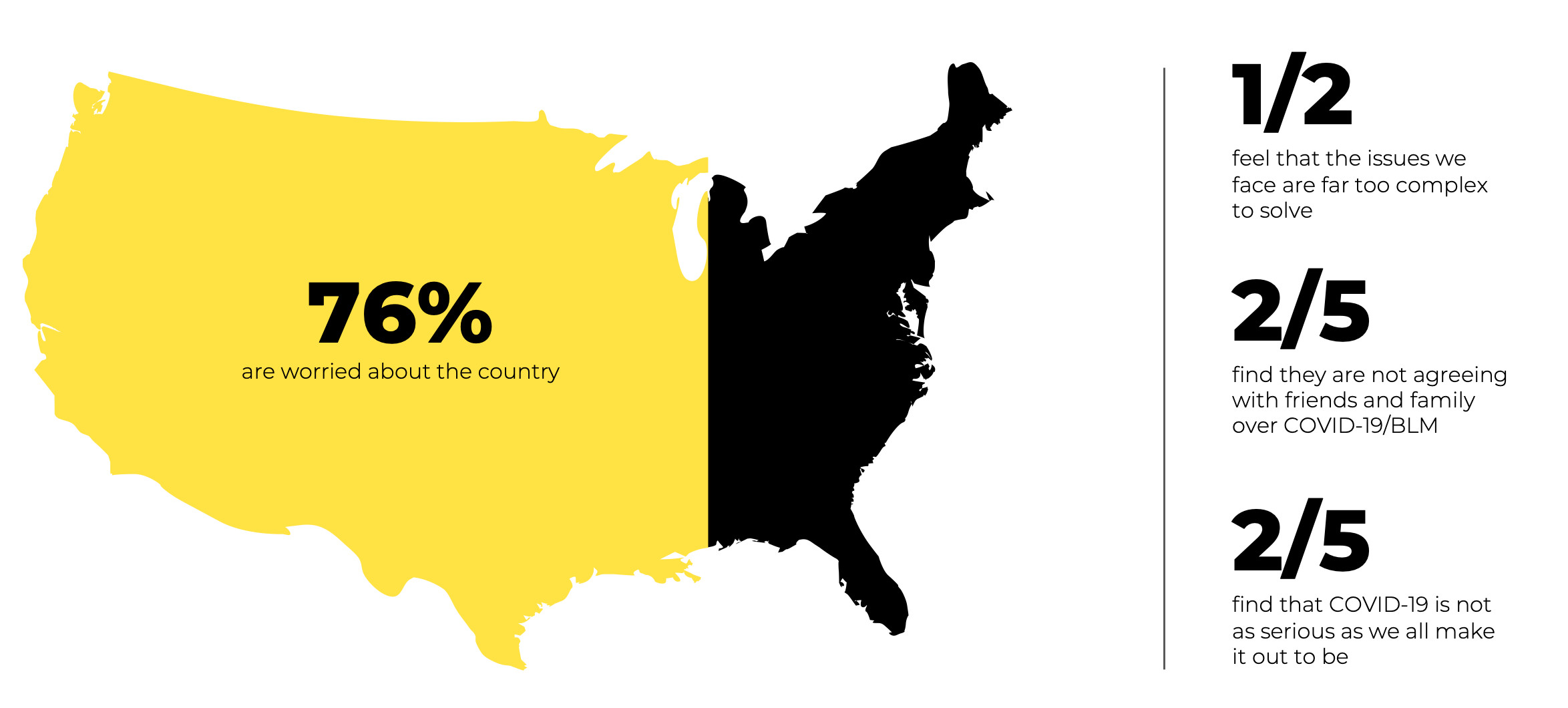
Journalism is fundamental to personal decision-making, providing answers, and creating emotional stability. 64% need to know what’s happening in the news in order to make decisions. 58% find that the news is helping them get answers they can’t get anywhere else. 48% find the news to be more comforting during this time.
Regression to simplicity hurts society. Respected psychologists like Dr. Frank Yeomans, speaks to how regression to simplicity and splitting can lead to malignant narcissism. Under immense pressure – like a pandemic, response to systematic racism, and a challenged election – we regress to simple because we are “cognitively lazy.” Currently, our digital experiences work to reinforce simple sides that are reflected in narcissistic pathology. The danger isn’t just self-absorbed simplicity, but the growth in pleasure of aggression and destruction of others who don’t think like us.
A powerful model for conflict resolution. This is why we must look to prominent psychological constructs that lead to better outcomes like conflict resolution. The combination of empathy, perspective, and distress can lead to a better outcome for conflict resolution. Research shows that when people are in distress, they are less likely to be empathetic.
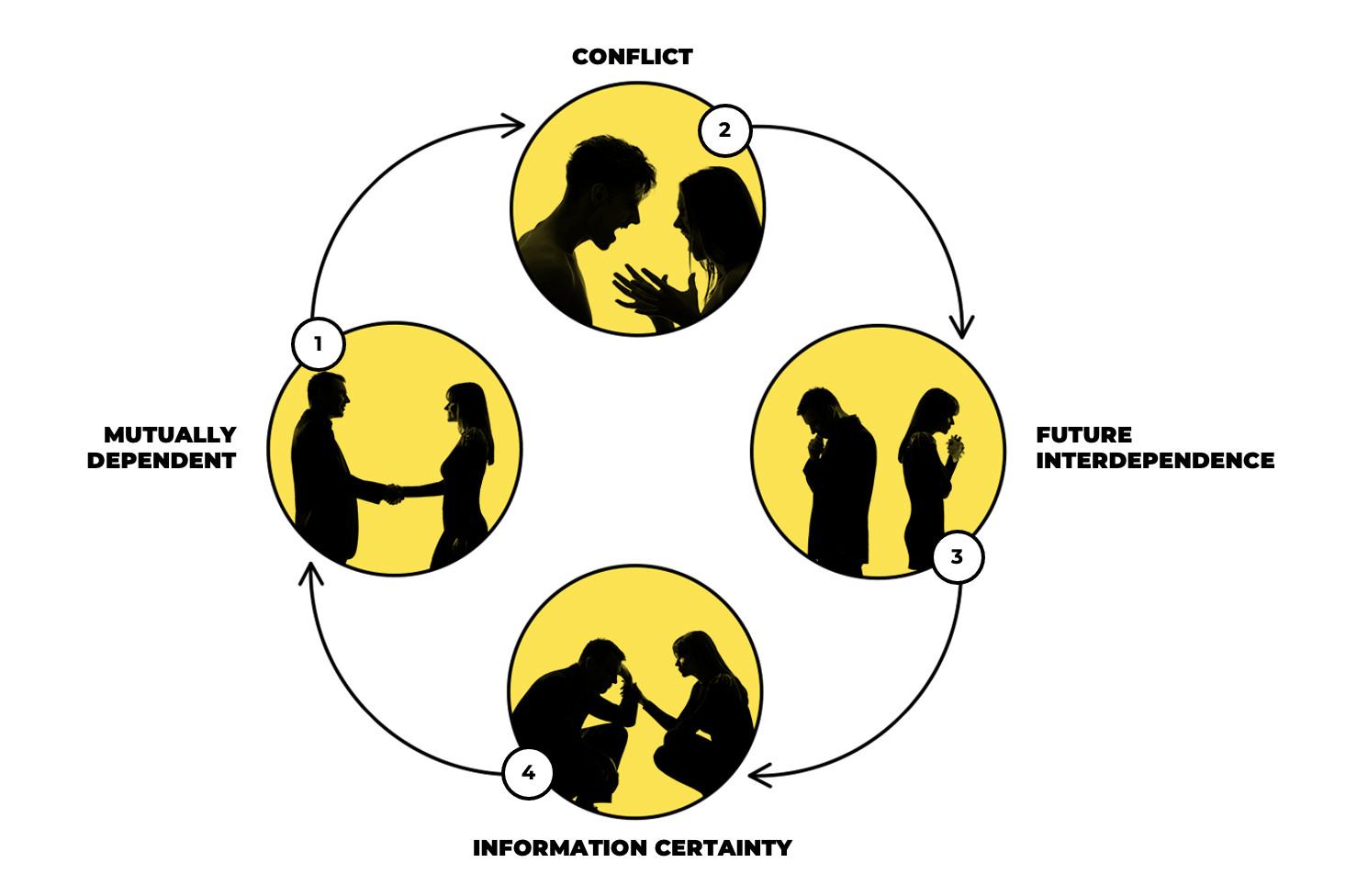
What makes this work different is understanding how digital news is impacting the psychological models around conflict resolution, specifically in context to the large challenges we face with Covid-19 and systematic racism that resulted in the Black Lives Matter movement.
We found that:
- We clearly understand that we need each other
- We have a general understanding that what we do now impacts what happens later
- But we have a self-righteous view that “the other side” does not get me an/or prefers a different outcome, suggesting that our connectedness is broken – at least in part – due because of a perception that people on the “other” side don’t understand us.
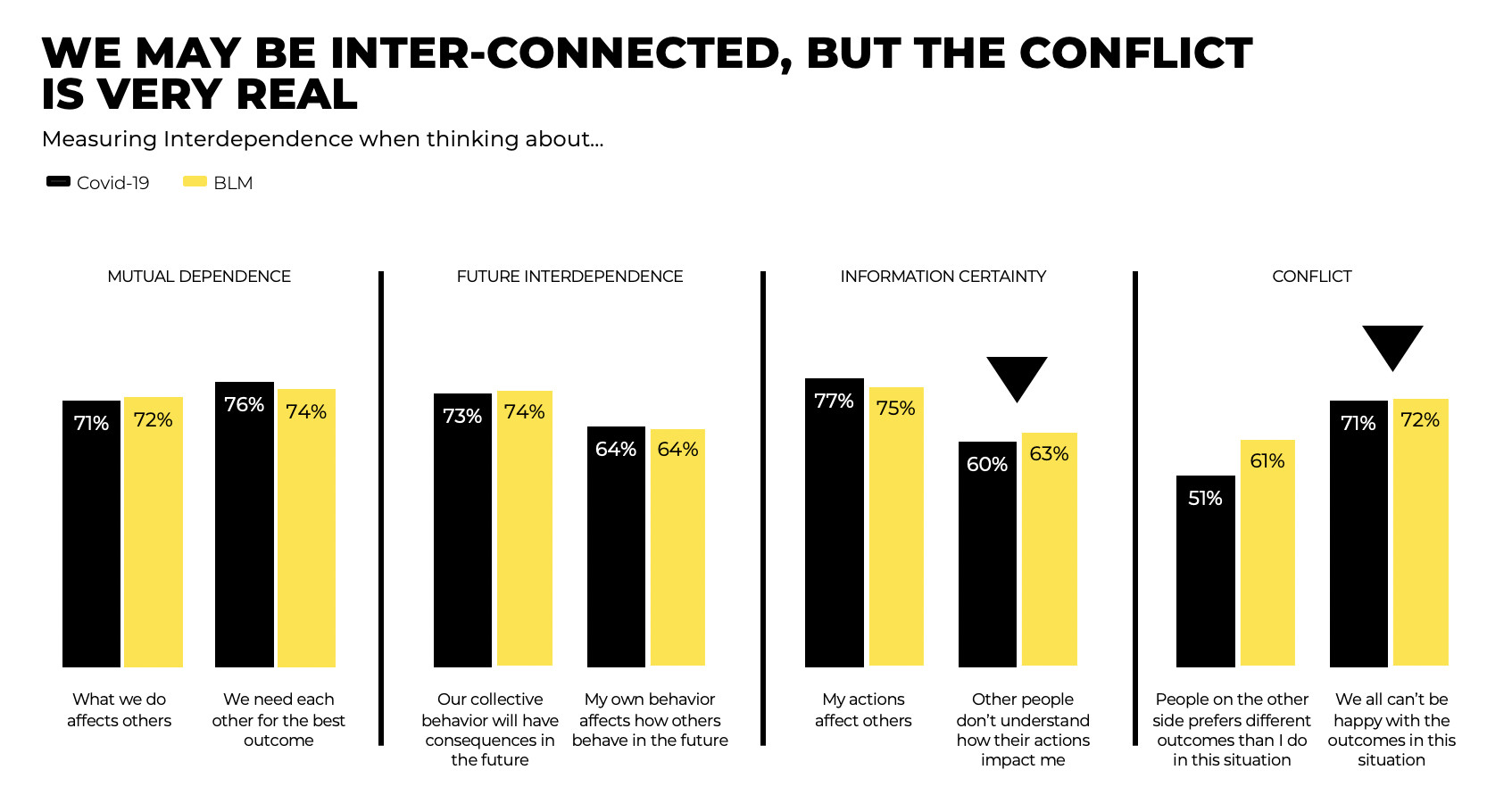
For many, digital news is not helping to resolve conflict. When further measuring the general population and the attributes needed for conflict resolution (empathy, perspective, and distress) as it relates to the Covid-19 pandemic and the Black Lives Matter movement, there was an average -24% gap with how digital news delivers against how we one might resolve conflict. What this data reports is that the current news cycle is not describing both sides of the story, not creating the empathy we need, not easing apprehension, and not keeping a sense of calm.
BUT, Vox uses context to alleviate conflict. The data strongly suggests that Vox readers, in particular, feel the digital news they engage with is more than 3X more effective in helping with areas of conflict resolution. In fact, there is a positive gain as the Vox News audience believe the news content they read is doing an exceptional job helping them imagine being in other people’s shoes, creating a relative sense of calm, describing both sides, and unlocking the understanding critical to conflict resolution.
As a result, there is an outsized impact on helping us past our conflict in a significant and meaningful way.
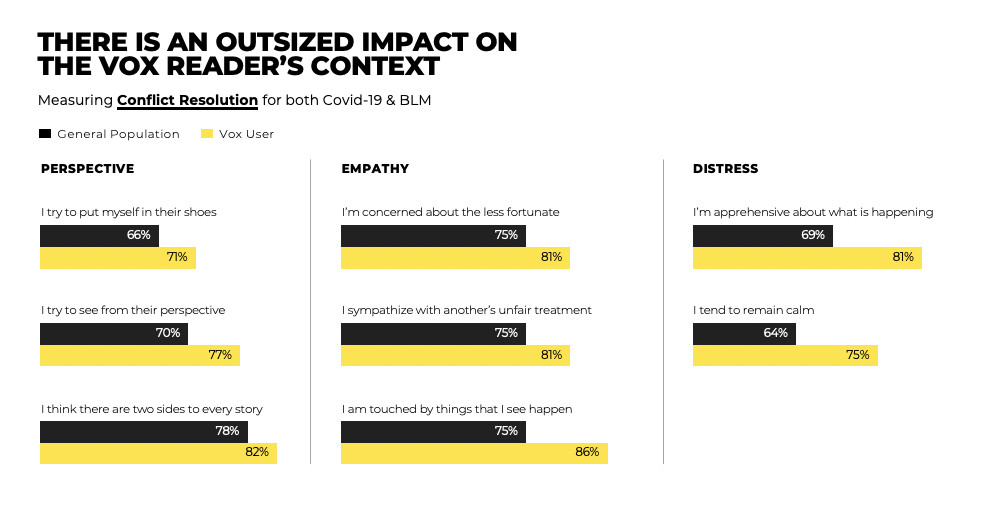
Journalism has a great responsibility right now. Understanding it, understanding its role, and thoughtfully understanding its place will be critical for readers and marketers alike. While many have discounted the polarized nature and purported brand safety of news, it may, in fact, be the most important medium in the next decade. The pandemic has fundamentally changed society , and redefined the role of journalism.
Methodology
A survey was commissioned to ~2,500 consumers during Q3-2020. Our partner, SightX is a premium research partner, their goal to automate curiosity.
Edwin Wong is Senior Vice President, Insights & Innovation at Vox Media, the leading independent modern media company known for building the best media brands and the technology that enables them. He leads research to identify key trends in consumer behavior and help advertisers capitalize on these trends to effectively connect with their core audiences. He has been studying digital consumer behavior for nearly 20 years and has held previous roles at BuzzFeed, Pinterest and Yahoo.
